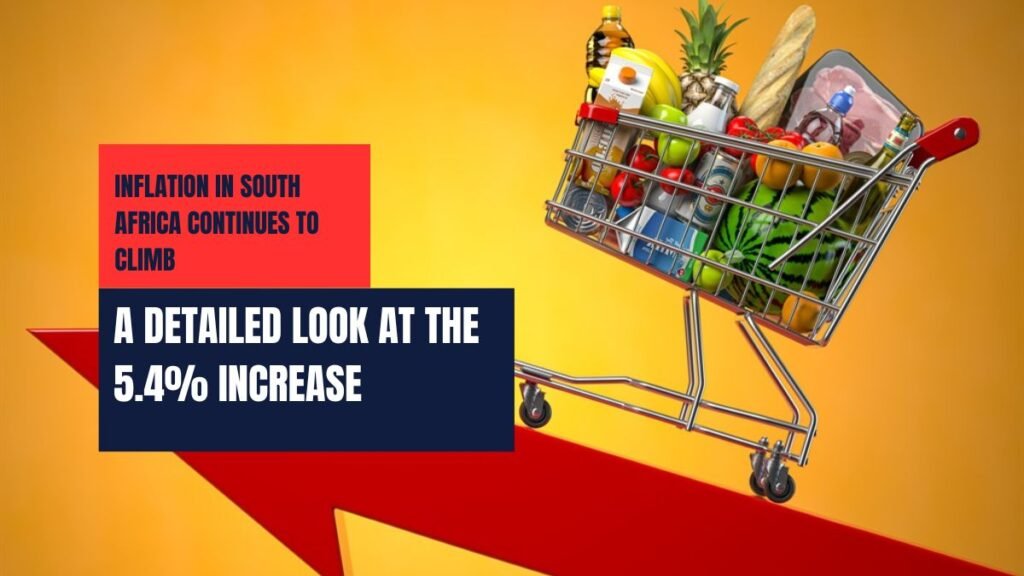Inflation is a crucial economic indicator that shows how the cost of goods and services increases over time. In South Africa, the inflation rate has recently risen to 5.4%. This increase impacts consumers by reducing the purchasing power of money, making everyday items more expensive. Let’s delve into the current inflation rate, its effects, and future predictions.
What is Inflation?
Inflation measures how much prices for goods and services rise over time. The Consumer Price Index (CPI) is often used to track these changes. Inflation affects different items at different rates, so the CPI helps measure these variations. Currently, South Africa’s inflation rate is 5.4%, marking a significant increase from previous months.
Current Inflation Rate and Future Outlook
The inflation rate in South Africa has been climbing, impacting the cost of various goods and services. Here’s a snapshot of recent inflation trends:
| Month | Inflation Rate (%) |
|---|---|
| June | 4.7% |
| August | 4.8% |
| September | 5.4% |
The increase from 4.7% in June to 5.4% in September shows a rising trend, which could affect future economic stability. The forecast for inflation remains uncertain, causing potential challenges for businesses and consumers alike.
Recent Changes in Prices
Several factors contribute to the rising inflation rate. Here’s a breakdown of recent price changes:
| Category | August 2024 (%) | September 2024 (%) |
|---|---|---|
| Fuel Prices | -11.7% | 1.5% |
| Food and NAB | 8.0% | 8.1% |
| Hot Beverages | N/A | 3.5% |
| Fresh Whole Chicken | N/A | 2.2% |
| Non-IQF Chicken Portions | N/A | 1.9% |
| Bread and Cereals | 9.9% | 9.2% |
| Rice | 19.8% | 18.6% |
The table highlights specific price changes across different categories, showing how inflation affects various products.
Effects of Inflation
Inflation impacts different sectors in various ways. Some industries might not be heavily affected, while others could experience significant challenges. Here are some common effects:
| Effect | Description |
|---|---|
| Decreased Investment | Uncertainty about future inflation can reduce investments. |
| Increased Costs | Higher prices lead to increased costs for consumers. |
| Stockpiling | People may stockpile goods to avoid future price increases. |
Authorities often implement policies to stabilize inflation. Effective management helps ensure economic stability and keeps costs manageable for consumers.
Conclusion
South Africa is experiencing a notable increase in its inflation rate, which has reached 5.4%. This rise affects various sectors, making everyday items more expensive. By understanding these trends and their impacts, consumers and businesses can better prepare for future changes. For more detailed information, visit the Statistics South Africa website.
FAQ’s
What is the current inflation rate in South Africa?
As of September 2024, the inflation rate in South Africa is 5.4%. This indicates a recent increase from the 4.7% rate observed in June.
How does inflation impact consumers in South Africa?
Inflation reduces the purchasing power of money, making goods and services more expensive. This means consumers need to spend more to buy the same items they could have bought for less in the past.
What are the main contributors to the recent rise in inflation?
The recent rise in inflation is driven by increased prices in fuel, food, and other essentials. For example, fuel prices have surged, and there has been a noticeable increase in the cost of food items like meat and beverages.

